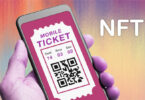Tomorrow GUTS Tickets which uses blockchain for ticketing will be selling tickets for popular local star Guus Meeuwis’s June 2020 event. The 35,000 seat Philips stadium in Eindhoven will host the multi-day event. Last year we reported the company sold 50,000 tickets for a famous local comedian. The founders created the GET Protocol for ticketing, which has its own GET token.
The startup aims to target ticket scalping and fraud. Every ticket is associated with the buyer’s mobile phone, which makes it hard for someone else to steal it. And it can’t just be copied because the barcode is only made available just before the event. The Dutch Police even included GUTS Tickets as one of two online outlets which are safe to purchase tickets.
We had three questions about the GET protocol. How does it address scalping? Is GUTS really using blockchain? Is blockchain necessary?
How does GUTS address scalping?
Both GUTS and GET talk a lot about scalping and how it makes tickets expensive for consumers without the benefit going to the event organizer. The platform supports the re-selling of tickets, so at first, we thought this was just another ticketing venue, and scalpers would shift location.
The answer is to control where tickets can be re-sold and the price.
So tickets come with rules. If an event organizer doesn’t want the tickets to be re-sold, this can be prevented. But most allow re-selling. However, tickets can only be re-sold via the GET protocol at the original selling price, which somewhat kills a scalper’s profit.
Although the intention is noble, we wouldn’t be surprised if in future someone legally challenges the resale price control.
Using blockchain will make the process more transparent because all the transactions are logged while still protecting the user’s privacy. So any change of ownership will be registered, which is safer than buying a ticket on an online forum. And the buyer knows the seller really owns the ticket. Plus because the barcode is only visible shortly before the event, it also makes fraud by copying much harder.
Is GUTS really using blockchain?
When we wrote about GUTS last year, we noted that while it used Ethereum, there were workarounds because of the scalability, speed and cost of using Ethereum. In other words, GUTS was really running a centralized database as an interim step.
The solution has now evolved so that it uses a sidechain solution to address scalability. That means a hash, or illegible representation of the transaction, is stored in batches, and the batch is registered on the blockchain. So instead of one transaction recorded on Ethereum, 200 transactions might be recorded in one lump.
Does it really need blockchain?
It’s entirely possible for GUTS to verify ownership of a ticket and control the price and venue of resale without blockchain.
Enough people have asked about blockchain that they’ve created a blog post explaining the need. Their arguments boil down to a need for transparency, and a desire to disintermediate centralized ticket companies like Ticketmaster.
We’re aware of at least three other blockchain ticketing startups mainly focused on sports. Ticketmaster bought U.S. based sports ticketing company Upgraded. In the U.K., Footies Tech is chaired by a football (soccer) team CEO. UEFA also trialed a Secutix blockchain solution to address counterfeiting.
Neither the author nor any Ledger Insights team member own GET tokens







